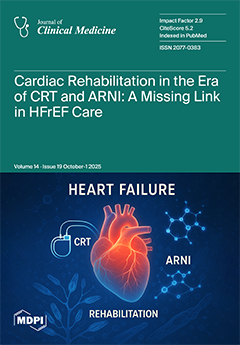Background/Objectives: Pelvic floor muscle (PFM) training is widely recommended during pregnancy and postpartum as both a preventive and therapeutic intervention. The addition of electromyography (EMG) biofeedback may further enhance training effectiveness. This study aimed to evaluate the effectiveness of a 6-week BeBo
® PFM training program (BeBo
®, derived from the German
Beckenboden, “pelvic floor”) and to compare it with BeBo
® training combined with EMG biofeedback in women after vaginal delivery (VD) and cesarean section (CS), relative to control groups.
Methods: A total of 120 primiparous women (mean age 29.0 ± 1.9 years), 6–8 weeks postpartum after VD (n = 60) or CS (n = 60), were randomly assigned to BeBo
® training, BeBo
®+EMG-biofeedback, or control group. Neuromuscular PFM activity was assessed before and after intervention using surface electromyography (sEMG; Noraxon G2 TeleMyo 2400) with a vaginal probe.
Results: Women performing BeBo
® training with EMG-biofeedback demonstrated significantly greater improvements in PFM endurance (
p < 0.001, η
2 = 0.423) in both VD and CS groups compared with controls and BeBo
® training alone. Regarding maximal fast contraction, significant improvements (
p = 0.042, η
2 = 0.097) were observed in both delivery groups within the EMG-biofeedback group, whereas BeBo
® training alone was effective only in the VD group.
Conclusions: PFM training based on the BeBo
® concept, particularly when supported by EMG-biofeedback, effectively enhances neuromuscular function, with the greatest benefits observed in women after VD. EMG-biofeedback should be considered as an adjunct in standard postpartum preventive care, with training protocols tailored to delivery mode: relaxation-focused for CS and strengthening-focused for VD.
Full article






